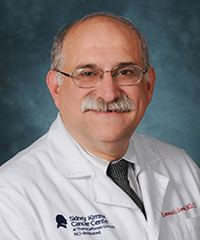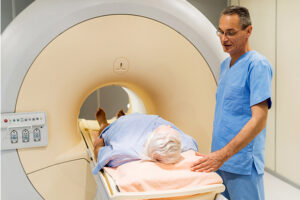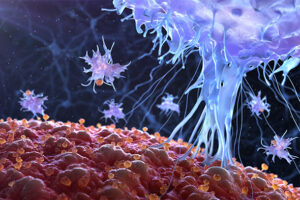Oncology
Prostate Cancer
Advanced Prostate Cancer: The Importance of Mood and Quality of Life
Overview
Reducing the burden of treatment-related symptoms is an important goal of new and emerging therapies for advanced prostate cancer, as both prostate cancer and its treatment may adversely impact quality of life (QOL). In addition, nontreatment-related factors such family/social engagement and physical activity may have profoundly positive impacts on QOL.
Expert Commentary
Leonard Gomella, MD
|
|
“Encouraging patients to maintain social interactions with family and friends, as well as remain physically active, may help improve outcomes such as QOL, and potentially even survival.”
Patients with advanced prostate cancer have to cope with a number of stresses and other issues that are related to their disease and its treatment, such as side effects from androgen deprivation therapy. Recently introduced and emerging therapies (ie, second-generation antiandrogens) are being developed with those side effect burdens in mind. There is a role for tailoring these agents and their distinct profiles to the individual patient, but there is also an overriding principle that not every patient with nonmetastatic castration-resistant prostate cancer needs to be treated. QOL may be impacted by treatment, but there are a few other influences, such as social support and physical activity, that may be of great importance in QOL as well.
Family and social support are often key in this regard. Several studies have shown increased survival among men with prostate cancer who were married vs those who were unmarried. Additionally, there has been a strong impetus recently to encourage patients with prostate cancer, especially those receiving androgen deprivation therapy, to maintain as normal a lifestyle as possible and to be physically active. Exercise is beneficial, and weight training helps maintain muscle mass and bone mineral density. We work together with our advanced practitioners on these efforts, and we have patient education materials available that convey the importance of maintaining a normal, healthy lifestyle when going on androgen deprivation therapy. This is a need that has been recognized, and we are spending much more time on encouraging QOL maintenance through exercise and other social engagements.
Unfortunately, there are several reports of increased rates of cardiovascular death and suicide among men with prostate cancer soon after they are diagnosed. Again, this reinforces the importance of social, psychological, and family support. It is also important to remember that androgen deprivation therapy may have a negative impact on a variety of comorbidities, such as diabetes and hypercholesterolemia. Overall health and well-being are connected to QOL, and partnerships with primary care providers and other specialists can help ensure that all of a patient’s health concerns are being addressed (eg, sarcopenia, dyslipidemia, hyperglycemia). As relates to depression, in many cases, advanced practitioners might notice a difference in the patient’s mood, or perhaps family members will report that the patient’s mood has changed. Additionally, there are questionnaires available to help identify patients who may be under psychological distress and would benefit from psychological support. Primary care physicians routinely prescribe antidepressant medications, but, unfortunately, patients may not receive the full benefit of pharmacotherapy together with counseling when insurance carriers do not cover the latter.
References
Benedict C, Dahn JR, Antoni MH, et al. Positive and negative mood in men with advanced prostate cancer undergoing androgen deprivation therapy: considering the role of social support and stress. Psychooncology. 2015;24(8):932-939. doi:10.1002/pon.3681
Friedenreich CM, Wang Q, Neilson HK, Kopciuk KA, McGregor SE, Courneya KS. Physical activity and survival after prostate cancer. Eur Urol. 2016;70(4):576-585. doi:10.1016/j.eururo.2015.12.032
Hennequin C, Rozet F, Mongiat-Artus P, Ringuet NPL, Houchard A, Roupret M. Mental perception of prostate cancer (PCa) disease in patients aged 60 years and older initiating gonadotropin-releasing hormone agonist (GnRH) therapy [abstract 67]. J Clin Oncol. 2020;38(6 suppl):67. doi:10.1200/JCO.2020.38.6_suppl.67
Khan S, Nepple KG, Kibel AS, et al. The association of marital status and mortality among men with early-stage prostate cancer treated with radical prostatectomy: insight into post-prostatectomy survival strategies. Cancer Causes Control. 2019;30(8):871-876. doi:10.1007/s10552-019-01194-y
Newton RU, Galvão DA, Spry N, et al. Timing of exercise for muscle strength and physical function in men initiating ADT for prostate cancer. Prostate Cancer Prostatic Dis. 2020 Feb 4. doi:10.1038/s41391-019-0200-z
Shevach J, Weiner A, Morgans AK. Quality of life–focused decision-making for prostate cancer. Curr Urol Rep. 2019;20(10):57. doi:10.1007/s11934-019-0924-2











